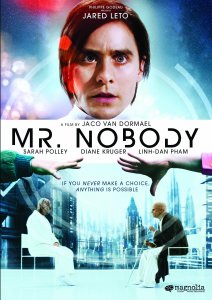Let’s ask the question: What am I? Not ‘Who am I?,’ because asking ‘Who am I?’ would already presume the presence of some entity whose nature is being questioned. Just what am I. Am I my body? No, that’s my body…again the presence of an entity is presumed to which my body would be assigned. Because what is this ‘my’ in my body? What makes my body ‘my’ body and your body ‘your’ body? What makes ‘you’ you and ‘me’ me? Are there even such things as ‘you’ and ‘me’? Or all we all part of a bigger whole; a continuum of nature in which no discrete entities exist?
When I’m referring to ‘me’, I’m not referring to what I have. And that includes my body. I think I am referring to my consciousness. But then again: what is this ‘my’ in ‘my consciousness’? What makes my consciousness mine and your consciousness yours? Assuming that you have a consciousness of course…I don’t know. There has to be something ‘my’ consciousness would have to be ascribed to in order to make it different from ‘your’ consciousness. My body maybe…and now we’re back at where we started.
It appears like we are just too stupid to come to understand what the ‘I’ in ‘What am I?’ is. Our tiny little brains just cannot handle the question. But, instead of a big read ‘ERROR’ appearing in the middle of our minds, the mind desperately tries to come up with an answer. Anything. It doesn’t manner how unverifiable or implausible it is. Desperately it tries to find something that makes ‘me’ me and ‘you’ you. But over and over again it returns home disappointed…not even knowing where or what this home is.
How does the ‘who’ in ‘who am I?’ differ from the ‘what’ in ‘what am I?’ Do they even differ? Because if it not, determinism might be unavoidable. If there is nothing in us that contributes at least a little value to the collective of cells making up our bodies, then we have to conclude that we are the collective of cells making up our bodies. But then free will would be nothing more than an illusion. Or it must be something that is formed in some inconceivable manner by the gigantically complex network of cells we call our bodies.
But let me ask you: what if free will would merely be an illusion? Would you care? Would your life become any different from what it is now? You could still do anything you want to do. The only difference is that what you ‘want’ to do would be programmed into your genetic structure. ‘You’ would merely be a witness overlooking the execution of this protocol.
Do you believe in consciousness? And if so, what do you believe it is? And would you mind if your consciousness would be like a fart; nothing but a by-product of your body?

